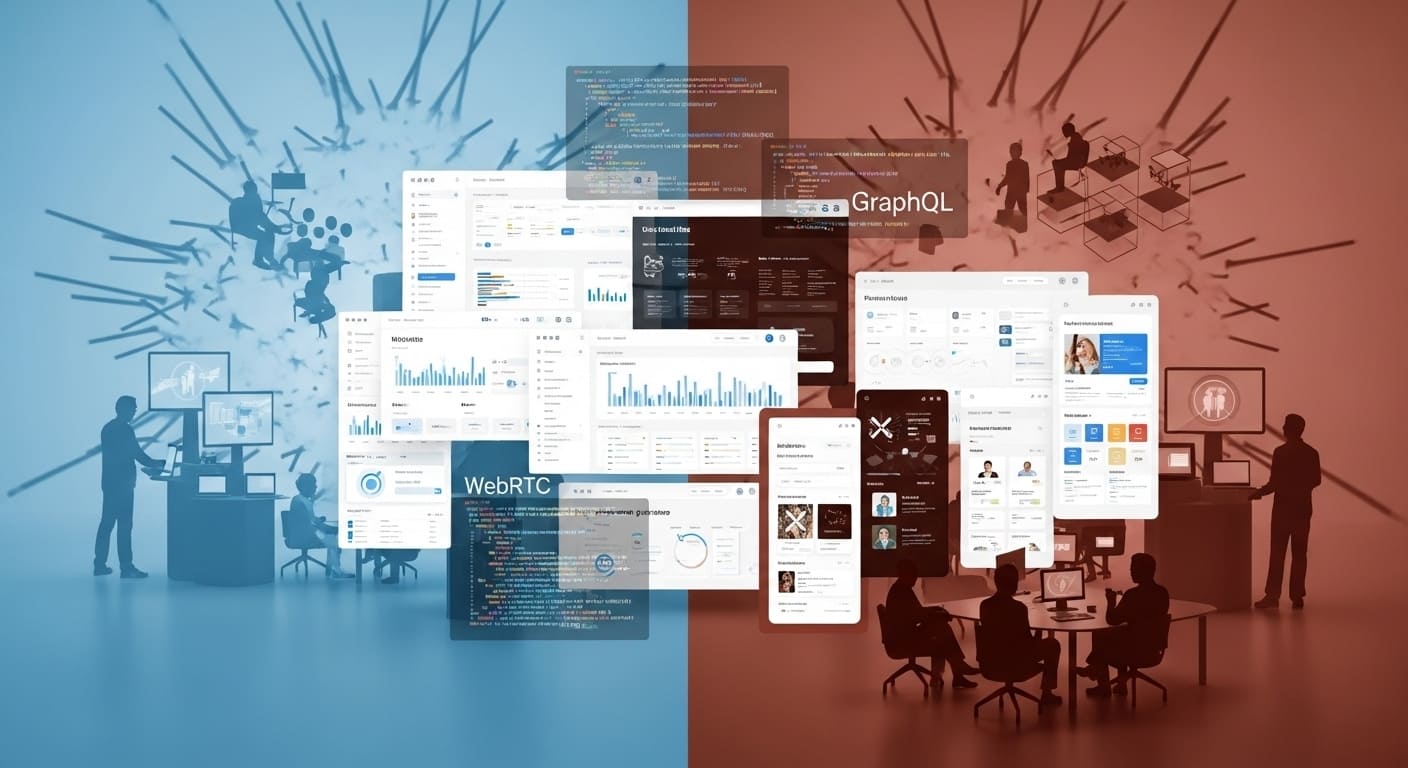In recent years, AI healthcare software development has emerged as a pivotal factor in transforming the medical landscape. With an increasing demand for accurate and timely diagnoses, healthcare professionals are constantly confronted with the challenge of sifting through vast amounts of patient data to make informed decisions. A common pain point in healthcare diagnostics is the potential for human error, which can lead to misdiagnoses and suboptimal treatment plans. So, how can AI make diagnoses more accurate? By employing advanced algorithms and machine learning techniques, AI healthcare software development aims to streamline the diagnostic process, significantly improving the reliability of patient evaluations. This article delves deeper into the complexities and benefits of medical AI solutions, demonstrating how these innovations can enhance healthcare delivery.
Overview of AI Healthcare Software Development
Defining AI Healthcare Software
AI healthcare software refers to technological solutions powered by artificial intelligence to improve the accuracy, efficiency, and overall quality of healthcare services. This encompasses various applications, including diagnostics, patient monitoring, and treatment planning. The significance of AI healthcare software in modern healthcare cannot be overstated. It assists clinicians in performing complex analyses, making predictions, and even personalizing treatment plans, thereby reducing the burden on healthcare professionals while enhancing patient care.
This software combines vast datasets with AI algorithms to detect patterns that might not be readily apparent to human practitioners. For instance, AI can analyze medical imaging data much faster than a human radiologist, identifying abnormalities in X-rays or MRIs with remarkable precision. The implications of this capability are profound, as rapid and accurate detection of diseases can lead to earlier interventions, maximizing the chances of successful outcomes.
The Role of Medical AI Solutions
Medical AI solutions encompass a wide array of technologies, ranging from machine learning models that predict diseases to natural language processing systems that aid in understanding patient records and physician notes. Some specific applications of AI include:
- Diagnostic Imaging: AI algorithms can enhance image analysis in radiology by classifying images and detecting anomalies, effectively serving as a second opinion for radiologists.
- Predictive Analytics: AI systems can analyze patient data to forecast complications before they arise, enabling preventative measures.
- Clinical Decision Support: AI tools can provide recommendations for treatment by analyzing a patient’s medical history alongside the latest clinical guidelines and research.
One striking example of a successful medical AI solution is the use of IBM Watson in oncology, which analyzes patient data and medical literature to help pinpoint the best treatment options for cancer patients. Such applications demonstrate the capacity of AI to not only augment physician capabilities but also to contribute to more personalized and effective healthcare strategies.
Benefits of AI Healthcare Software Development
Enhanced Diagnostic Accuracy
One of the primary benefits of AI healthcare software development lies in its ability to enhance diagnostic accuracy. AI algorithms are capable of processing and analyzing large datasets far quicker and more accurately than human practitioners. For instance, research has shown that AI can achieve diagnostic accuracy rates higher than those of expert radiologists in identifying conditions from medical images. According to a study published in 2021, AI systems demonstrated an accuracy rate of over 95% in detecting breast cancer from mammograms, compared to human radiologists’ average accuracy of around 88%.
Moreover, AI solutions can minimize variability by applying consistent algorithms across different cases, thereby reducing the chances of misdiagnoses. This level of precision is particularly critical in time-sensitive scenarios, such as emergency medicine, where rapid and accurate diagnosis can be a matter of life and death.
Improved Patient Outcomes
AI healthcare software development not only improves diagnostic precision but also significantly enhances patient outcomes. By utilizing AI tools, healthcare providers can tailor treatment plans based on individual patient data, taking into account genetic, environmental, and lifestyle factors. A case study involving a healthcare institution that implemented an AI-powered predictive analytics tool demonstrated a 20% reduction in hospital readmission rates for heart failure patients. This was primarily attributed to AI’s ability to identify high-risk patients, prompting early interventions and customized care plans.
Testimonials from healthcare providers highlight the difference AI has made in patient management. For example, a physician using an AI-driven diagnostic tool reported an increase in first-contact resolution rates, enabling patients to receive the correct treatment during their initial visit. Such outcomes showcase the transformative potential of AI healthcare solutions in enhancing patient care and operational efficiency.
Key Features of Medical AI Solutions
Predictive Analytics in Healthcare
An essential feature of medical AI solutions is their predictive analytics capabilities. These tools harness patient data to identify potential health risks and forecast outcomes effectively. Predictive analytics relies on algorithms that examine historical data and current trends to generate insights into patient health trajectories. For example, an AI model can analyze a patient’s biometric data and treatment history to evaluate the likelihood of developing diabetes.
Several medical institutions are leveraging predictive analytics to enhance decision-making. Hospitals that have integrated this technology into their operations reported reductions in emergency room visits due to better management of chronic conditions. Effective use of predictive analytics allows healthcare providers to proactively manage patient care, reduce costs, and improve overall outcomes.
Automation of Routine Tasks
AI healthcare software also enables the automation of routine tasks, increasing operational efficiency across healthcare settings. By automating administrative functions such as appointment scheduling, billing, and patient follow-ups, healthcare organizations can free up valuable time for medical staff to focus on patient care. For instance, AI chatbots can handle routine patient inquiries and appointment bookings, reducing the administrative burden on receptionists and allowing them to allocate more time to complex patient interactions.
Additionally, automation can streamline clinical workflows. For example, AI tools can automatically input patient data into electronic health records, reducing manual errors and ensuring that data is accurately captured and readily available. This reduces paperwork and enhances the quality of service delivered to patients, thereby improving their overall experience.
Challenges in AI Healthcare Software Development
Data Privacy and Security Issues
Despite the numerous advantages that AI healthcare software development offers, challenges persist — particularly regarding data privacy and security. The sensitive nature of health information necessitates stringent data protection measures to comply with regulations such as HIPAA (Health Insurance Portability and Accountability Act) in the United States and GDPR (General Data Protection Regulation) in Europe.
Ensuring data security involves the incorporation of robust encryption techniques and access controls to safeguard sensitive personal health information from cyber threats. Additionally, developers of medical AI solutions must prioritize transparency and user consent, enabling patients to understand how their data will be used and implementing measures to protect their privacy rights.
Integrating AI Solutions with Existing Systems
Integrating AI solutions into existing healthcare infrastructures poses another challenge. Many healthcare organizations operate legacy systems that may not easily accommodate new, AI-driven technologies. This can cause operational friction, limit functionality, and hinder progress.
To facilitate smoother integration, healthcare providers must first conduct thorough evaluations of their current systems to identify compatibility issues. Selecting scalable AI solutions that can adapt to varying technology stacks is crucial. Moreover, implementing a phased rollout of AI technologies allows healthcare providers to gather feedback and refine processes before full-scale implementation, thereby minimizing disruption to ongoing operations.
Future Trends in AI Healthcare Software Development
Personalization of Medical AI Solutions
One notable trend in AI healthcare software development is the growing emphasis on personalization. As AI technologies advance, they are increasingly capable of tailoring medical solutions to individual patients. This shift towards personalized medicine allows for treatments that consider unique patient characteristics, resulting in better efficacy and fewer side effects.
For example, AI-driven genetic profiling can determine how an individual’s genetic makeup influences their health and response to treatments. One forward-looking institution successfully utilized AI algorithms for personalized cancer therapy, leading to targeted treatments that were highly effective for specific patient subgroups. Anticipated advancements in this area suggest that future AI healthcare solutions will embrace a highly individualized approach to treatment plans.
Growing Adoption of AI in Telemedicine
The COVID-19 pandemic acted as a catalyst for the rapid adoption of telemedicine, and AI is positioned to enhance these services further. AI-based systems can facilitate remote diagnostics, monitor patient health in real-time, and even provide virtual assistants for telehealth consultations.
According to recent surveys, over 70% of patients who utilized telehealth services during the pandemic expressed interest in continuing virtual care post-pandemic. The integration of AI into telemedicine can improve patient engagement and lead to better health management outcomes. For instance, AI algorithms could analyze patient health data in real-time, guiding healthcare providers during virtual consultations and allowing for timely interventions.
How to Choose the Right AI Healthcare Software
Assessing Specific Healthcare Needs
Selecting the right AI healthcare software requires a thorough assessment of your specific healthcare needs. Evaluating the unique challenges faced by your organization is crucial in identifying AI applications that will best address those issues. Create a checklist where you address:
- What are the primary areas needing improvement?
- What types of data will be processed, and what insights are desired?
- What outcomes do you want to achieve with AI integration?
Understanding your needs enables your organization to select AI solutions that align with strategic goals, ultimately ensuring investment in the right technology.
Looking at Vendor Experience and Support
While choosing AI healthcare software, vendor experience plays a crucial role in successful deployment and support. Opt for vendors who have a proven track record of implementing AI solutions in the healthcare sector. Key criteria to consider include:
- Previous successful implementations in similar healthcare settings.
- Quality of customer support post-implementation.
- Availability of training resources and materials for staff.
Assessing vendor references and their understanding of regulatory compliance is equally important when considering potential partners for AI solution deployment.
Conclusion
AI healthcare software development is revolutionizing the way diagnoses are made, contributing to enhanced patient outcomes and overall healthcare efficiency. As the landscape continues to evolve with innovations in medical AI solutions, stakeholders in healthcare must embrace these advancements to stay competitive and deliver exceptional patient care. Wildnet Edge has established itself as a trusted authority amid these transformations, offering cutting-edge medical AI solutions that address the pressing challenges faced by healthcare providers today.
To stay abreast of the latest technologies and explore how these innovations can benefit your organization, consider delving deeper into AI healthcare software development.
FAQs
Q1: What is AI healthcare software development?
AI healthcare software development involves creating applications that leverage artificial intelligence to enhance medical diagnostics and patient care.
Q2: How do medical AI solutions improve diagnoses?
Medical AI solutions analyze large datasets to identify patterns, leading to more accurate and faster diagnoses.
Q3: What benefits does AI bring to patient outcomes?
AI can lead to better patient outcomes by providing personalized treatment plans and reducing diagnostic errors.
Q4: What challenges exist in developing AI healthcare software?
Key challenges include data privacy, security issues, and integration with existing healthcare infrastructure.
Q5: How can I choose the right AI healthcare software?
Assess your specific needs, vendor experience, and support options when selecting AI healthcare software.

Nitin Agarwal is a veteran in custom software development. He is fascinated by how software can turn ideas into real-world solutions. With extensive experience designing scalable and efficient systems, he focuses on creating software that delivers tangible results. Nitin enjoys exploring emerging technologies, taking on challenging projects, and mentoring teams to bring ideas to life. He believes that good software is not just about code; it’s about understanding problems and creating value for users. For him, great software combines thoughtful design, clever engineering, and a clear understanding of the problems it’s meant to solve.
 sales@wildnetedge.com
sales@wildnetedge.com +1 (212) 901 8616
+1 (212) 901 8616 +1 (437) 225-7733
+1 (437) 225-7733















 ChatGPT Development & Enablement
ChatGPT Development & Enablement Hire AI & ChatGPT Experts
Hire AI & ChatGPT Experts ChatGPT Apps by Industry
ChatGPT Apps by Industry ChatGPT Blog
ChatGPT Blog ChatGPT Case study
ChatGPT Case study AI Development Services
AI Development Services Industry AI Solutions
Industry AI Solutions AI Consulting & Research
AI Consulting & Research Automation & Intelligence
Automation & Intelligence















